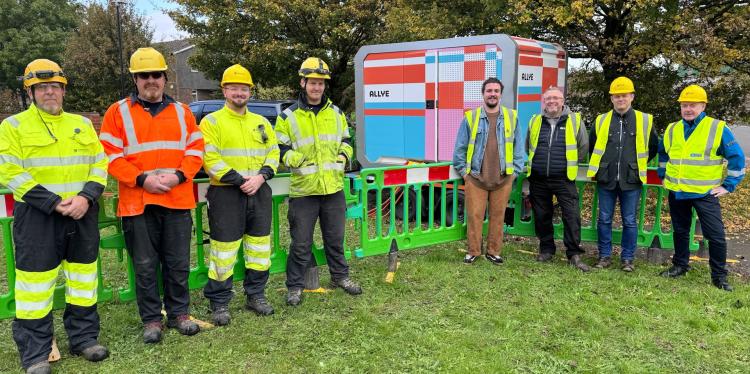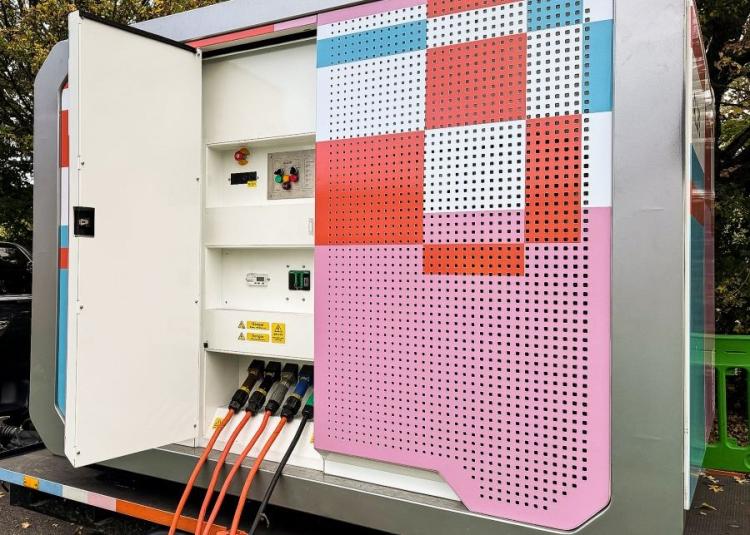We're taking bold, industry-leading action to further reduce our emissions.
In line with our target to reduce carbon intensity by 80% by 2030, we're running trials of new net zero solutions to replace the fleet of fossil-fuelled generators used during power cuts.
We've now successfully carried out a test where for the first time, we connected a large battery pack to the network, via a substation in Slough. This test was to assess how such a battery generator would perform in the event of a supply interruption.
What are generators for?
We currently deploy generators in certain circumstances to provide power if there is a prolonged outage on the network. Given our commitment to net zero, we're urgently pursuing longer-term solutions to eliminate emissions from our generator fleet.

ABOVE: The team from SSEN and the battery developers who ran the recent successful trial in Slough.
We've a long-standing track record of trying out new technologies to improve the service offered to our customers, so over the coming months, our engineers will test a range of battery electric and hydrogen-powered batteries to assess their performance, efficiency, and durability. Our trials will inform a rigorous procurement process to replace the existing fleet.

How we're already cutting emissions
In the meantime, in line with our commitment to pursue every feasible opportunity to cut carbon, we're reducing emissions from the current fleet of generators. Following a successful trial, we're now now working on making the full fleet run on Vegetable Oil (HVO) instead of white diesel.
HVO is a low-carbon substitute, made from waste materials like used cooking oil. Assessments indicate the use of this fuel is having a big impact on air quality, with Carbon Monoxide and Particulate Matter emissions down by 30% compared with diesel. HVO is also free from aromatics and sulphur, which are both harmful to human health.
By using biofuels such as HVO, we've cut out 752 tonnes of CO2 emissions since the start of this year.
Richard Gough, SSEN's Head of Region for Thames Valley, says:
"Here at SSEN, we have a deep, enduring commitment to help deliver net zero, and we're always looking for viable solutions to get us there quicker, expanding our experience and knowledge as we go. That's why we're leading the way in these extensive trials of alternatives to fuel-powered generators.
"This process has now taken another big step forward with the deployment of a battery-powered generator on the actual network, which successfully kept customers connected. This is just one of a series of trials we'll be conducting over the next few months, where we'll assess the suitability of a range of solutions which are new to the market.
"Having a culture where we're always testing new tech means when the time comes to procure one of these solutions, our customers and stakeholders can be reassured we've run a thorough process to provide them with a safe and affordable solution."









